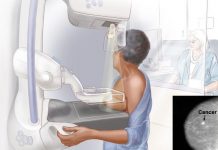
Risk factors for premenstrual syndrome are:
- a family history of PMS
- domestic violence
- substance abuse
- emotional trauma
- a history of depression or mood disorders,such as postpartum depression.
- a family history of depression
- physical trauma
Associated conditions are:
- major depressive disorder
- generalized anxiety disorder
- schizophrenia
- dysmenorrhea
- seasonal affective disorder
Symptoms of PMS
Menstruation, or bleeding, occurs on day 28 of the cycle. PMS symptoms can begin around day 14 and last until seven days after the start of menstruation.The severity of symptoms can vary by individual and by month. The symptoms of PMS are:
- acne
- food cravings, especially for sweets
- constipation
- headaches
- sensitivity to light or sound
- fatigue
- changes in sleep patterns
- anxiety
- sadness
- emotional outbursts
- abdominal bloating
- sore breasts
- diarrhea
- irritability
- depression
When to see your doctor
See your doctor if mood swings,physical pain, and other symptoms start to affect your daily life, or if your symptoms don’t go away. The diagnosis is made when you have more than one recurrent symptom in the correct time frame that is severe enough to cause impairment and is absent between menses and ovulation. Your doctor must also cheek out other causes, such as:
- endometriosis
- chronic fatigue syndrome
- connective tissue or rheumatologic diseases
- anemia
- irritable bowel syndrome (IBS)
- thyroid disease
Your doctor should also ask about any history of depression or mood disorders in your family to determine whether your symptoms are the result of PMS or another condition. Some conditions, such as hypothyroidism, and pregnancy,IBS, have symptoms similar to PMS. Your doctor should do a thyroid hormone test to ensure that your thyroid gland is working properly, a pregnancy test, and possibly a pelvic exam to check for any gynecological problems.
Keeping a good record of your symptoms is another way to determine if you have PMS. The Use of a calendar to keep track of your symptoms and menstruation every month is also recommended. If your symptoms start around the same time each month, PMS is a likely cause.




